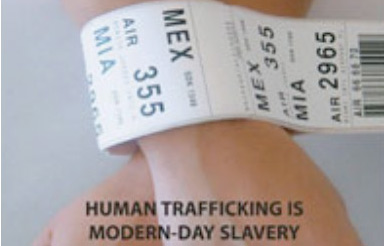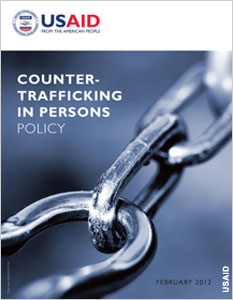 Recently thrust into the media due to the less-than-honorable actions of some members of President Obama’s Secret Service team, sex tourism has risen to the attention of the global community. Sex tourism, defined as traveling to a domestic or international location with the purpose of purchasing sex, has become a multi-billion dollar industry with some seriously questionable repercussions.
Recently thrust into the media due to the less-than-honorable actions of some members of President Obama’s Secret Service team, sex tourism has risen to the attention of the global community. Sex tourism, defined as traveling to a domestic or international location with the purpose of purchasing sex, has become a multi-billion dollar industry with some seriously questionable repercussions.
One such repercussion is the proliferation of sex trafficking. Sex tourism increases the demand for commercial sex, enticing traffickers to force women and children into the market to satisfy this demand. This leads to child sex tourism, which is defined as traveling to a location with the purpose of engaging in sex with a minor. Although this commercially-facilitated form of child abuse is known to occur in countries with a weak economic structure, it also occurs in the United States on a regular basis.
For example, Las Vegas is a hub for sex tourism, and thus sex trafficking is extremely common. In a 2008 study performed by Shared Hope, over 400 prostituted children were found in Las Vegas in just one month. Efforts to curb child sex trafficking have made some progress, but the problem continues to plague the area. Fortunately, law enforcement agencies are aware of the strong presence of sex trafficking and tourism in Las Vegas, and are developing measures in similar areas in their communities with the potential to become a hub for sex trafficking. For example, Hollywood Casino Toledo is slated to open in Toledo, Ohio this June, so local law enforcement officers are being trained to identify and address sex trafficking.
 Countries with a weak economic structure are popular destinations for sex tourism because buyers can purchase comparatively less expensive sexual services with exotic women, men and/or children, with greater anonymity than if purchasing in their home country. A prime example is India. According to the 2011 Trafficking in Persons Report, “Religious pilgrimage centers and cities popular for tourism continue to be vulnerable to child sex tourism. Indian nationals engage in child sex tourism within the country and, to a lesser extent, in other countries.” Essentially, Indian children are being trafficked in India to provide domestic and international tourists with sex, and Indian adults also travel to other countries to engage in sex with minors.
Countries with a weak economic structure are popular destinations for sex tourism because buyers can purchase comparatively less expensive sexual services with exotic women, men and/or children, with greater anonymity than if purchasing in their home country. A prime example is India. According to the 2011 Trafficking in Persons Report, “Religious pilgrimage centers and cities popular for tourism continue to be vulnerable to child sex tourism. Indian nationals engage in child sex tourism within the country and, to a lesser extent, in other countries.” Essentially, Indian children are being trafficked in India to provide domestic and international tourists with sex, and Indian adults also travel to other countries to engage in sex with minors.
All forms of sex tourism fuel global sex trafficking. Although the U.S. Secret Service members’ alleged sexual engagement involved adults, their actions are driving the sex tourism industry, thus promoting the brutal commercial sexual exploitation of women and children in the region and around the world.
 By Anne Reilly
By Anne Reilly Though the TVPA provides a strong legal platform, many states are lacking laws on the issue. Shared Hope spearheaded the effort to make sex trafficking a priority issue in states by creating the
Though the TVPA provides a strong legal platform, many states are lacking laws on the issue. Shared Hope spearheaded the effort to make sex trafficking a priority issue in states by creating the 






